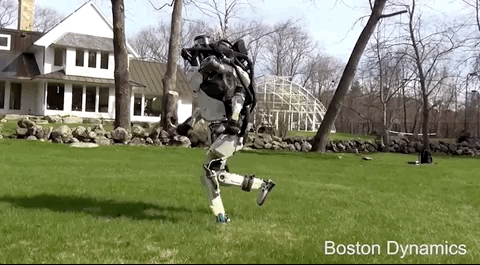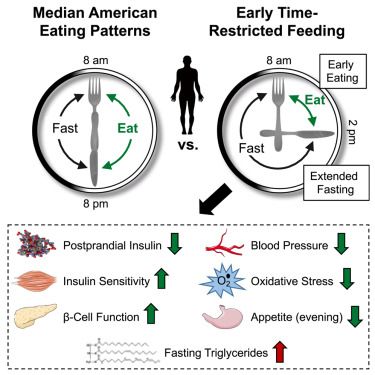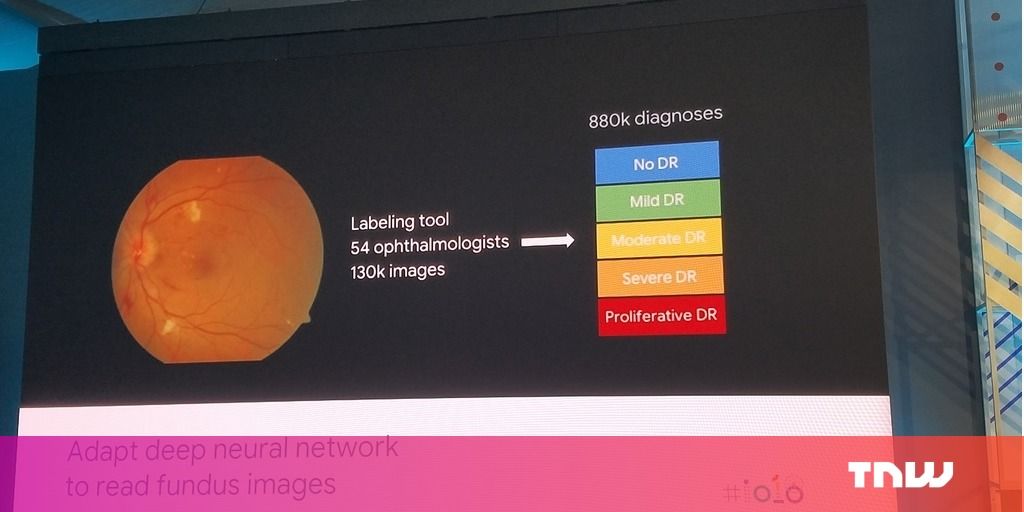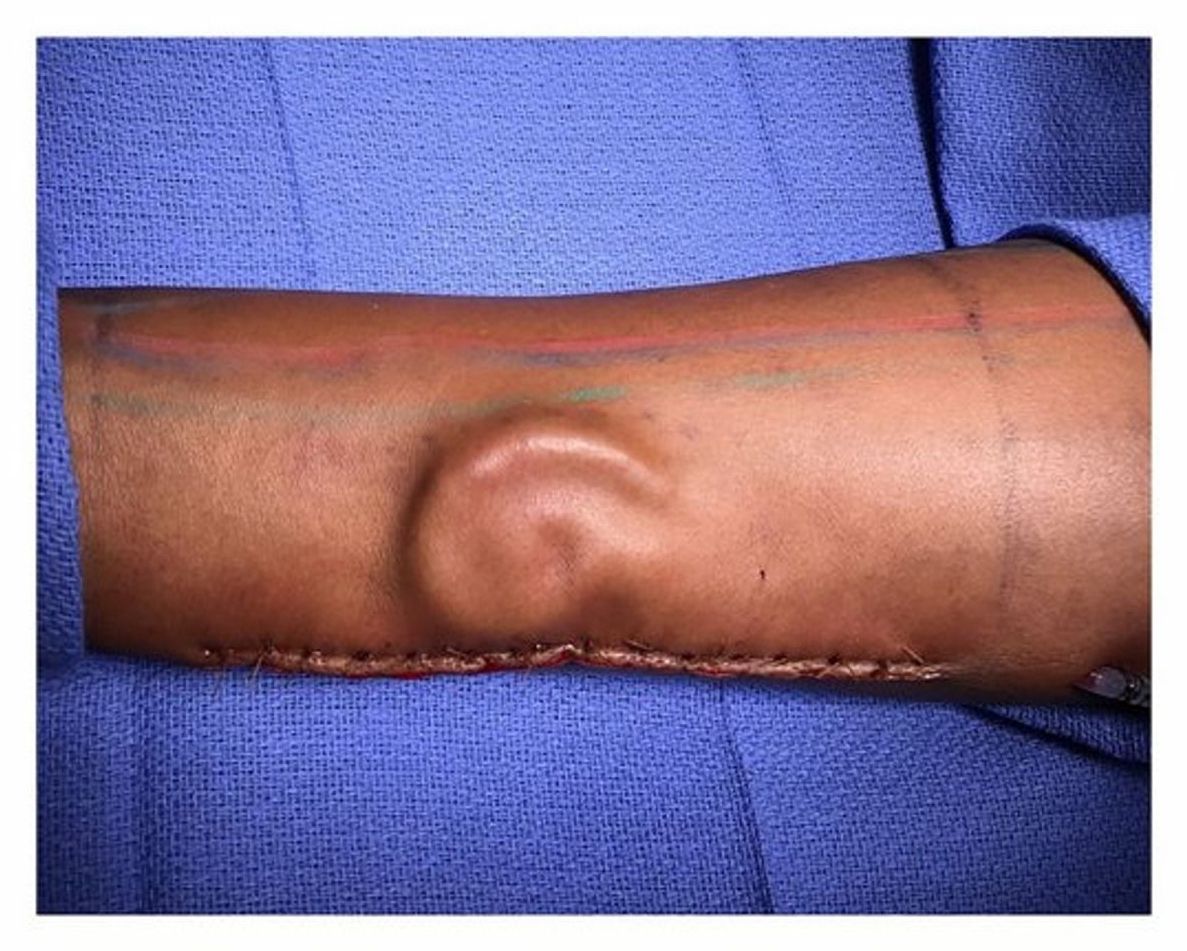Page 10171
May 10, 2018
Early Time-Restricted Feeding Improves Insulin Sensitivity, Blood Pressure, and Oxidative Stress Even without Weight Loss in Men with Prediabetes
Posted by Manuel Canovas Lechuga in category: biotech/medical
Sutton et al. conduct the first supervised controlled feeding trial to test whether intermittent fasting has benefits in humans in the absence of weight loss. Prediabetic men following a form of intermittent fasting called early time-restricted feeding improved their insulin sensitivity, blood pressure, and oxidative stress levels without losing weight.
May 10, 2018
Elon Musk wants to launch the same rocket to orbit twice in a single day
Posted by Genevieve Klien in categories: Elon Musk, space travel
Launching the same rocket to orbit twice in 24 hours has never been done before. But Elon Musk says the newest version of his Falcon 9 rocket will accomplish the feat in 2019.
“This is a ridiculously hard thing that has taken us…16 years of extreme effort and many, many iterations,” the serial entrepreneur told reporters, after warning them “we’re definitely going to stay on space, don’t even try.” SpaceX is debuting the new rocket today with the launch of Bangladesh’s first satellite.
Musk said this is intended to be the final version of the SpaceX workhorse Falcon 9, allowing his engineers to focus on a larger interplanetary rocket called the BFR. In the meantime, Block 5, as the final iteration is known, could fly as many as 300 missions into space. “If things go well, SpaceX will launch more rockets than any other country in 2018,” Musk predicted.
Continue reading “Elon Musk wants to launch the same rocket to orbit twice in a single day” »
May 10, 2018
Seeing is believing: How AI could prevent blindness for 415 million people (right now)
Posted by Genevieve Klien in categories: biotech/medical, information science, robotics/AI
When you take a picture of a cat and Google’s algorithms place it in a folder called “pets,” with no direction from you, you’re seeing the benefit of image recognition AI. The exact same technology is used by doctors to diagnose diseases on a scale never before possible by humans.
Diabetic retinopathy, caused by type two diabetes, is the fastest-growing cause of preventable blindness. Each of the more than 415 million people living with the disease risks losing their eyesight unless they have regular access to doctors.
In countries like India there are simply too many patients for doctors to treat. There are 4,000 diabetic patients for every ophthalmologist in India, where the US has one for every 1,500 patients.
May 10, 2018
Scientists develop a 3D view of an interstellar cloud, where stars are born
Posted by Genevieve Klien in category: space travel
Astronomers have accomplished a difficult feat: determining the 3D structure of an interstellar cloud, where stars are born.
May 10, 2018
US commercial drones given green light
Posted by Shane Hinshaw in categories: biotech/medical, drones, food, robotics/AI
Drones that monitor crops, control mosquito populations and deliver defibrillators are to be tested in US airspace.
Ten commercial drone projects have been selected to try out new ways for unmanned aircraft to be integrated into the skies.
They include Zipline, which currently offers a blood-delivery service in Rwanda, and Apple.
May 10, 2018
Doctors Replaced a Soldier’s Lost Ear Using a Wild Medical Technique
Posted by Genevieve Klien in categories: biotech/medical, materials
In a first for United States Army doctors, Burrage received an ear transplant that was grown from her own tissue inside her own body. A team, led by Lieutenant Colonel Owen Johnson III, the chief of plastic and reconstructive surgery at William Beaumont Army Medical Center in El Paso, Texas, harvested cartilage from Burrage’s ribs, carved it into the shape of an ear, and implanted it under the skin in her arm. There, it developed blood vessels, which Johnson says will allow Burrage to regain feeling in the ear once it’s healed. In an announcement released on Monday, Johnson called the operation a success.
Article continues below.
May 10, 2018
Microsoft predicts five-year wait for quantum computing in Azure
Posted by Klaus Baldauf in categories: computing, quantum physics
May 10, 2018
A Rogue Star Hurtling Towards The Solar System Is Going to Arrive Sooner Than We Realised
Posted by Genevieve Klien in category: cosmology
According to new calculations, we may have a little less time to prepare for a star on course to kiss the edges of our Solar System.
Yep. Dwarf star Gliese 710, which we’ve known about for some time, could now arrive in 1.29 million years, instead of the previously calculated 1.36 million years.
Gliese 710 is what is classified as a rogue star — one that has gone roaming across the galaxy, free of the gravitational chains that normally hold stars in position.
We are destined to go where humanity never has before and create the World’s first beer for space! | Check out ‘Vostok Space Beer’ on Indiegogo.

















